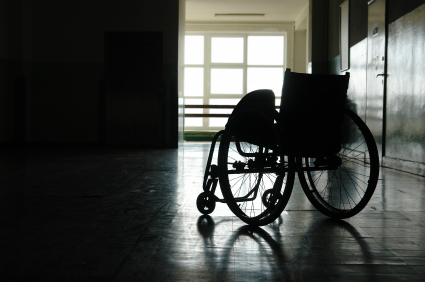
If you have lost a close relative due to nursing home abuse, you may be eligible for a wrongful death claim against the nursing home. If you are a relative of the deceased and your loved one passed away due to the nursing home’s abuse, neglect, or negligence– then a Dallas personal injury lawyer may be able to help you receive financial compensation for your loss.
What will you need to show?
To present a viable wrongful death claim, you will need to show the following:
- That the death was caused in some fashion by the nursing home
- The conduct of the caregivers, staff, or health care professionals at the nursing home contributed to the death
- That you are a parent, spouse, or child of the deceased. If so, then you may act as a beneficiary and seek compensation for the family’s losses as a result of your loved one’s death
- The victim’s death has resulted in damages, pain, and/or suffering
Click Here to Call Our Law Office
Damages you may be able to recover
An experienced personal injury lawyer can help you recover any damages to which you are entitled. As a beneficiary, some of them might include:
- Loss of companionship
- Mental or emotional suffering
- The pain and suffering of the deceased
- Medical bills
- Costs associated with the funeral and burial
- Punitive damages: If you can show that the nursing home committed a willful act or omission, or an extreme degree of negligence, which is known as gross negligence, then punitive damages may apply. These damages are meant to punish the parties responsible for your loved one’s death and deter them and others from doing this again in the future
What are some examples of nursing home abuse and neglect?
Spotting the signs that your loved one may be a victim of elder abuse can be challenging, as some nursing home residents are limited in their ability to communicate. In contrast, other victims may be threatened into silence by their abusers.
Fortunately, our team of Dallas elder abuse lawyers is experienced at spotting these signs. Here are some examples of how abuse may unfold:
- Malnutrition or dehydration: At an advanced age and with diminished physical capacity, many of the residents in a nursing home are on a strict diet that needs to be followed. Others cannot feed themselves and therefore rely on a feeding tube or help from a staff member. Sometimes the caregivers are undertrained, and sometimes the nursing homes are understaffed. These issues can result in a resident not receiving sufficient or proper nutrients, which can have fatal consequences.
- Assault and abuse: This may occur at the hands of a nursing home staff member or even another resident. A Dallas elder abuse lawyer might be able to help you prove that the nursing home is still liable for resident-on-resident abuse if the residents were not adequately monitored.
- Elopement and wandering: Nursing home staff members are required to know where your loved one is at all times and keep them safe. If your loved one wanders off and is injured as a result of not being safely monitored, that could be an example of nursing home neglect.
- Bedsores/pressure ulcers: These are open sores that, when they develop on a person’s body, can easily become infected.
- Excessive restraint: Some nursing home residents may need to be restrained by the nursing home staff to keep them or other residents safe. However, if they are not restrained safely, they may be at a higher risk for suffocation, broken bones, or sprains.
- Unsanitary conditions: This could include mold, bacteria, poor air quality, lack of heating or air conditioning, or dirty water. Any of these can be fatal, especially given the weakened physical state of the residents.
- Mistakes in medication administration: This could arise in the form of an overdose, an underdose, or administering the wrong medication altogether.
Contact us for a free consultation
At Crowe Arnold & Majors, LLP, our team of Dallas elder abuse lawyers pride ourselves on exposing and fighting against nursing homes that abuse or neglect your loved ones. Call us today for your free consultation. We are always available 24 hours a day—and since we work on a contingency-fee-basis, there are no upfront legal fees.





